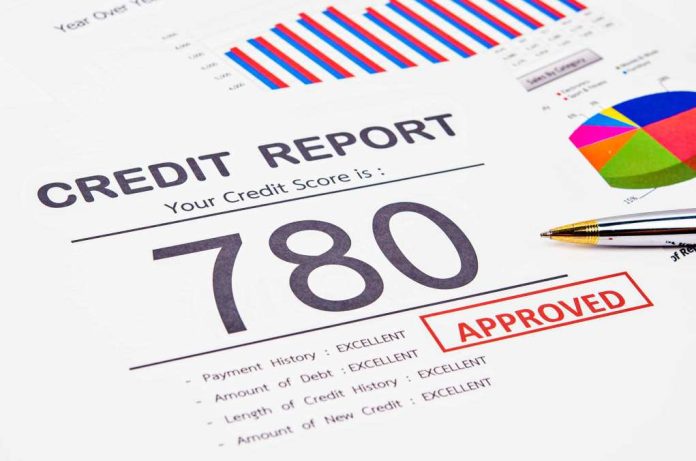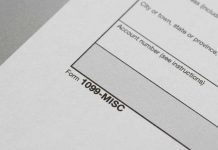
When learning about your credit, you can come across a lot of pieces that you may not be familiar with like credit repair and tradelines. However, understanding these pieces when it comes to your credit is important because it can help you get your credit score to the place you want it to be!
A Better Understanding of Your Credit Score
Before diving into different parts of your credit, it is important to have a clear understanding of your credit score. Your score is a number that’s between 300 and 850. This number is what lenders use in order to determine your creditworthiness. Creditworthiness is the term used to describe how consumers are able to handle their credit. This can help lenders understand the risk they face with you as a borrower.
Credit bureaus (also known as credit reporting agencies) use information found on your credit report to calculate this score. Your report has information about your credit file like your credit history, details about the accounts associated with your credit cards, and much more.
There are three main credit reporting agencies which are Transunion, Equifax, and Experian. These credit reporting agencies use scoring models in order to determine how each item on your credit report will affect your score. However, not every credit bureau uses the same scoring model. There are two main scoring models that credit reporting agencies use. There’s the popular FICO scoring model (which is used by 90% of top lenders) and there is the VantageScore model.
What Factors Can Affect Your Score?
Due to the fact that the FICO scoring model is the more widely used model, that is what we will use as reference for how factors can impact your score. There are five major factors that can have an impact on your score. These factors include:
- Payment History
- Credit Usage
- Credit History
- Hard Inquiries
- Types of Credit
Payment History
Your history of payments is the most important factor on this list. That’s because it not only accounts for 35% of your credit score, but it can help lenders easily understand how you repay your debts. Your history of payments can include information like your late payments, on-time payments, collection accounts, etc.
Credit Usage
Your credit usage refers to your credit utilization ratio. While this sounds like a confusing concept, it’s actually not! Your credit utilization ratio looks at your current credit usage compared to your overall credit limit. For example, if your credit limit is $1,400 but you are currently using $546 then your credit utilization ratio is 39%. This is the second factor on the list because it accounts for 30% of your score.
Credit History
The third factor on this list is your credit history. Your credit history accounts for 15% of your credit score. When you think of credit history, you should consider the age of your credit accounts. This would include the ages of your oldest account, your newest account, the average age of your accounts, etc. Your credit history only accounts for 15% of your score but it is important to keep in mind.
Hard Inquiries
When lenders want to get an in-depth look at your credit file to determine your eligibility, they will need to submit a hard inquiry. Hard inquiries are also known as hard pulls! Regardless of what you call it, they require written authorization from the consumer. Once the lender gets this authorization, that’s when they get the access. This factor only accounts for 10% of your credit score but it is still worth being mindful of.
Types of Credit
A lot of consumers don’t realize that there is more than one type of credit that can affect their score. There are two types of credit:
- Revolving Credit
- Installment Loans
Having a variety of credit accounts can show lenders that you know how to handle multiple different types of debt. This factor only accounts for 10% of your credit score (so just as much as hard inquiries).
Knowing Your Credit Score
Now that you have a better understanding of credit in general, you want to make sure you understand your credit standing specifically. There are different ways that you can check your score. You can:
- Use a third party app
- Check with your card issuer or financial institution
What is a Tradeline?
When learning about credit, you may come across the term tradeline. A tradeline is what credit reporting agencies use when describing credit accounts on your credit report. One account is one tradeline so if you have multiple credit accounts then you have multiple tradelines. Tradelines will have details about the account like information about the debt, creditor, etc. It’s important to understand what tradelines are in terms of your credit because it can help you get the context you need to make the decision that’s best for your situation.
Regardless of whether you have a revolving credit account or an installment loan account, these are what tradelines consist of. Examples of revolving credit would be a line of credit like a credit card. On the other hand, examples of installment loans would include loanslike auto loans, mortgages, personal loans, student loans, etc.
Tradelines will have information about your account. Information that a tradeline will have generally includes the following:
- A part of the account number
- Account type
- Current balance (or credit limit)
- Date of account creation
- Last activity in the account
- Date the account closed (if applicable)
- History of payments
- Lender’s address
- Lender’s name
- Monthly payment
- Original balance (or credit limit)
- Status of the account
All relevant information will be shown on your tradeline. Each tradeline will be shown on your credit report so you have an easy way to access these details in one spot. Lenders are the ones that report this information to the tradelines for the credit reporting agencies to see. However, not every lender reports to all three major credit bureaus which is why one version of your report may look different than another.
Is it Legal to Buy Tradelines?
So understanding the legality around tradelines can be tricky. While it may not specifically be “illegal” it can be viewed as deceptive by lenders and credit bureaus which could result in a bank fraud accusation. That’s because tradelines are on your credit report, and lenders use the information on your credit report to determine your creditworthiness, loan terms, interest rate, etc.
Buying a tradeline could boost a person’s credit score. This means a lender could ultimately consider someone eligible when they may not actually be eligible. Even if they are still eligible but wouldn’t qualify for the same rates from before buying the tradeline to after buying a tradeline, which means that could be an issue.
In fact, it became such an issue that credit bureaus, lenders, and the government are even cracking down on this practice. For example, the FICO Score 8 scoring model has technology to reduce how much buying tradelines will impact a consumer’s score. Another example would als be how many lenders like credit card issuers have language in their agreements that prohibit cardholders from participating in tradeline sales by not allowing cardholders to have selling access to their accounts.
Does Adding Tradelines Increase Your Credit Score?
Yes and no! Adding tradelines on your account could improve your credit score in the long run but may temporarily reduce your score. For example, opening a new credit card account would impact your overall credit history since there’s another new account. This new account would affect the average age of your credit. However, properly managing your tradeline account (regardless of whether or not it is an installment loan or revolving credit) can improve your score in the end. The same principle goes for the opposite. If you do not properly manage your tradeline then that negative impact would be seen on your score!
However, in terms of buying a tradeline, it could still boost your score. However, that boost isn’t recommended. That’s because it can be considered fraudulent and places are cracking down on this practice!
How Much will a Tradeline Boost Your Credit?
If you are really considering buying a tradeline then you could see your score boost by 40 to 45 points. However, we are going to be a broken record about the fact that buying a tradeline can be seen as fraud which can result in a variety of different penalties! It’s also important to note that since some scoring models are trying to crack down on these practices, you may not get the boost that you expect.
How Long Does it Take for Tradelines to Boost Credit?
You can expect a tradeline to show up on your credit report typically between 15 days and 45 days. However, in order to see the boost it will depend on the type of tradeline. For example, if the tradeline is on your credit report because you opened a new line of credit, then you may see a decrease before you see an increase. The increase you will see will vary on factors like how well you handle your payments, your credit usage, etc. However, if you are looking to see a boost from a seasoned tradeline that you buy, there is still no definitive answer.
Different Ways to Deal with Credit Repair
If you are searching for ways to handle credit repair, there are more options than you may realize. Two opportunities to consider include:
- Try a Credit Counseling Agency
- Hire a Credit Repair Company
- Improve Your Credit Habits
Try a Credit Counseling Agency
When people want to handle credit repair, they can get in touch with a credit counseling agency. Credit counseling agencies are typically non profit organizations that have professional credit counselors available to help consumers. Credit counselors are certified and trained people that can help in areas of consumer finance like budgeting, money management, consumer credit, and more. Some of the ways that they can help include:
- Give advice on how to manage your finances
- Help you create a budget
- Assist in the processing of getting your credit report and understanding your credit
- Provide guidance on your credit situation
- Provide educational materials
- Host educational workshops
Hire a Credit Repair Company
Credit repair companies are organizations that help consumers handle the dispute process. They can get a free copy of a consumer’s credit report, analyze it for any inaccurate items, and submit a dispute to one (or all) of the major credit bureaus). However, the credit repair services that these companies provide are not something that a consumer cannot do on their own. However, on average these companies cost between $19 to $149 every month. This can be expensive for people, especially when a consumer can handle the dispute process on their own.
Improve Your Credit Habits
While people may look for others to help them with the process of credit repair, they also need to take a look at themselves. That’s because you have control over how you manage your credit. There are some good credit habits that you can follow that can help you improve your score:
- Keep your credit utilization ratio below 30%
- Make your payments on time and in full when they are due
- Only apply for new credit when you need
- Don’t submit too many hard inquiries at once
- You may be able to benefit from have a variety of different credit accounts
Tradelines vs Credit Repair: What’s the Difference?
So when learning about credit repair and tradelines, it can be confusing to understand the difference. A tradeline is the term that credit bureaus use to describe an account on your credit report. Sometimes, people may buy a tradeline that has a good history in order to boost their credit score (as a form of credit repair). However, while it may not be illegal per say, it can be considered fraudulent which is illegal.
Credit repair on the other hand is the act of repairing your credit. You can do this in a variety of different ways! The best way to handle credit repair will depend on your situation. That is why you can benefit from getting in touch with a professional like a credit counselor or even a personal banker.
How Credit Repair and Tradelines Work Together to Fix Your Credit?
Like we said earlier, sometimes people try to repair their credit through buying a tradeline. The tradeline they purchase already is in good standing. The addition of a good standing account can cause a boost in your credit score. However, the practice is not recommended because it can be seen as fraudulent in the eyes of the lender. That’s because if the purchased tradeline results in a boost in a person’s credit score then they may be able to qualify for financing opportunities that they normally wouldn’t be eligible to receive. This can be seen as fraudulent!
Commonly Asked Questions
When learning about credit repair and tradlines, it can be confusing. Especially if your goal is just to improve your credit however you get it done. However, other people are in the same boat as you! That is why there are some commonly asked questions that others have had that you may have too.
What Type of Information is on Your Credit Report?
There are a variety of different types of information on your credit report. Your credit report contains information about your credit file like payment history, account details, etc. Each credit account will have their own set of details relating to the item. This is what tradelines are!
What Does it Mean to Have a Perfect Payment History?
A perfect payment history means that you do not have any type of late payments in your credit file. When you have this type of credit payment history then you can easily show lenders that you are a reliable borrower that knows how to handle their debts.
What are Tradelines for Credit and Tradelines for Sale?
When learning about tradelines, you may come across offers like, “Tradelines for Credit Available!” or “Tradelines for Sale Now!”. When seeing these types of advertisements you want to be wary. That’s because buying a tradeline for your credit report can be seen as fraudulent.
Is Credit Repair Illegal?
There’s a common misconception that credit repair is illegal. Lucily, that’s not the case! The only important thing to note about credit repair legality is the fact that in Georgia it may be considered a misdemeanor to operate credit repair companies (unless lenders, banks insured by the FDIC, and nonprofit organizations are the ones that operate the organization).
Can a Credit Card Help You Improve Your Credit Score?
Yes! If you properly handle your credit card then you could see a boost in your credit score. While opening a new credit card account could cause a temporary decrease since it is a new account that affects the average age of your credit history and it requires a hard inquiry, the positive history of payments and low credit utilization can make your score healthier. When reviewing which credit card is right for you, you will want to keep your goals in mind. While one credit card may be a great opportunity to earn travel points, another credit card may have even better rewards!
What is a Good Credit Score?
While having a perfect credit score is a great goal, some others only want to get a good credit score. Typically a good credit score would be considered 670 to 739. However, the number for a good credit score varies based on the scoring model!
How Many Credit Cards Should You Have?
There is no easy answer for the question of how many credit cards you should have. That’s because the answer relies on a variety of different factors like how you handle your credit cards, how credit you need, etc.
What’s the Difference Between Hard Inquiries and Soft Inquiries?
We talked about hard inquiries earlier in this article. However, it is important that you also have an understanding of soft inquiries because it’s easy to confuse the two! While hard inquiries are what lenders use in order to access your credit file, soft inquiries are a different story. Soft inquiries do not require written authorization from the consumer because they are only used to prequalify a person!
Bottom Line
If your credit score isn’t at a perfect 850, then you have room for improvement. There are plenty of ways that you can work on credit repair. However, when researching ways to achieve this goal, you may come across the option to buy tradelines to handle the process of credit repair. WHile in theory it makes sense, it could result in lenders seeing you as fraudulent which can come with some penalties. There are other ways that you can handle credit repair like get help from a credit counselor, consider credit repair companies, improve your credit management habits, and more. Take your time and if you need help you should get in touch with a professional like a credit counselor or even a personal banker!
Article References
https://www.investopedia.com/terms/c/credit-worthiness.asp
https://www.debt.org/credit/report/scoring-models/
https://www.self.inc/blog/buying-tradelines#is-buying-tradelines-legal
https://www.experian.com/blogs/ask-experian/are-buying-tradelines-legal/
https://coasttradelines.com/how-fast-do-tradelines-get-on-credit-reports-how-long-do-they-stay-on/
https://www.consumerfinance.gov/ask-cfpb/what-is-credit-counseling-en-1451/
https://www.investopedia.com/how-much-does-it-cost-to-repair-my-credit-5077091
https://www.justia.com/criminal/offenses/white-collar-crimes/bank-fraud/
https://www.creditstrong.com/payment-history/
https://consumer.georgia.gov/consumer-topics/credit-repair
https://www.equifax.com/personal/education/credit/score/what-is-a-good-credit-score/




























